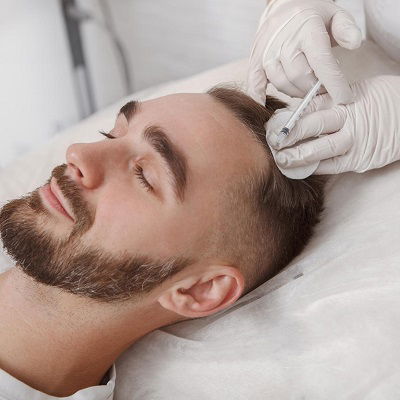The Truth About Hair Loss Supplements: Do They Work?
Hair loss can be a distressing experience for many individuals, leading them to seek various treatments to restore their confidence and hair fullness. In Oman, where traditional remedies often blend with modern solutions, one question prevails: Do hair loss supplements actually work? This article delves into the effectiveness of hair loss supplements while exploring the Best Hair Loss Treatment in Oman options available in Oman.

Understanding Hair Loss
Hair loss is a multifactorial issue, influenced by genetics, hormonal changes, nutritional deficiencies, and environmental factors. Understanding the underlying causes is crucial in determining the most effective treatment strategies.
Types of Hair Loss
- Androgenetic Alopecia: This hereditary condition affects both men and women, leading to gradual hair thinning and loss.
- Telogen Effluvium: Often triggered by stress, illness, or significant life changes, this temporary hair loss can affect people of all ages.
- Alopecia Areata: An autoimmune disorder resulting in patchy hair loss.
Why Hair Loss Supplements?
Hair loss supplements claim to promote hair growth and prevent further loss by providing essential vitamins and minerals. Popular ingredients often found in these supplements include:
- Biotin: Known to support hair strength and growth.
- Zinc: Essential for hair tissue growth and repair.
- Saw Palmetto: Believed to inhibit the production of DHT, a hormone linked to hair loss.
While many individuals turn to supplements for their purported benefits, it is essential to investigate their actual effectiveness.
Do Hair Loss Supplements Work?
Scientific Evidence
The efficacy of hair loss supplements varies, with some backed by scientific research and others merely supported by anecdotal evidence.
- Biotin: Some studies suggest that biotin can improve hair health, particularly in individuals with biotin deficiencies. However, its benefits in those with normal levels remain inconclusive.
- Saw Palmetto: A few studies indicate that saw palmetto may help reduce hair loss in men with androgenetic alopecia, although more extensive clinical trials are needed.
Limitations of Supplements
Despite the potential benefits, it’s important to recognize the limitations of hair loss supplements:
- Individual Variability: Results can differ significantly from person to person, depending on genetics and the specific cause of hair loss.
- Regulation Issues: Supplements are not strictly regulated by health authorities, leading to concerns about quality and efficacy.
Best Hair Loss Treatments in Oman
In Oman, a variety of treatments are available for individuals experiencing hair loss. While supplements can be part of a broader strategy, considering professional treatments may yield better results.
1. Minoxidil
Minoxidil is a topical treatment commonly recommended for both men and women. It works by stimulating hair follicles and increasing blood flow to the scalp.
- Application: Typically applied twice daily to the affected areas.
- Results: Users may start seeing results after 4-6 months of consistent use.
2. Finasteride
This prescription medication is primarily used for male pattern baldness. Finasteride works by blocking the conversion of testosterone to dihydrotestosterone (DHT).
- Efficacy: Clinical studies show that finasteride can significantly slow hair loss and promote regrowth in men.
3. Platelet-Rich Plasma (PRP) Therapy
PRP therapy is an innovative approach gaining popularity in Oman. It involves drawing a small amount of blood, processing it to concentrate the platelets, and injecting it into the scalp.
- Benefits: PRP can stimulate hair follicles and promote growth without invasive surgery.
- Sessions Required: Multiple sessions are usually necessary for optimal results.
4. Hair Transplantation
For those with advanced hair loss, hair transplantation can offer a permanent solution. This procedure involves relocating hair follicles from a donor area to the thinning or balding areas.
- Types of Procedures: Follicular Unit Extraction (FUE) and Follicular Unit Transplantation (FUT) are common techniques.
- Results: Patients often see significant improvements in hair density and appearance.
Lifestyle Changes for Healthier Hair
In addition to supplements and treatments, making certain lifestyle changes can support hair health:
1. Nutrition
A balanced diet rich in vitamins and minerals is crucial for hair growth. Focus on incorporating foods high in:
- Iron: Spinach, beans, and lentils.
- Omega-3 Fatty Acids: Fish, walnuts, and flaxseeds.
- Protein: Eggs, lean meats, and legumes.
2. Stress Management
Chronic stress can exacerbate hair loss. Techniques such as yoga, meditation, and regular physical activity can help reduce stress levels and promote overall well-being.
3. Avoiding Harmful Practices
Certain hair care practices can damage hair, leading to increased loss. Avoid:
- Excessive Heat Styling: Limit the use of hot tools like straighteners and curling irons.
- Tight Hairstyles: Styles that pull on the hair can lead to traction alopecia.
Conclusion
While hair loss supplements may offer some benefits, their effectiveness largely depends on individual factors and the underlying cause of hair loss. In Oman, various treatment options, including minoxidil, finasteride, PRP therapy, and hair transplantation, provide promising results for those seeking to restore their hair. Alongside these treatments, adopting a healthy lifestyle and making informed choices about hair care can further enhance hair health. If you are experiencing significant hair loss, consulting with a qualified professional is crucial to determine the best hair loss treatment tailored to your needs
